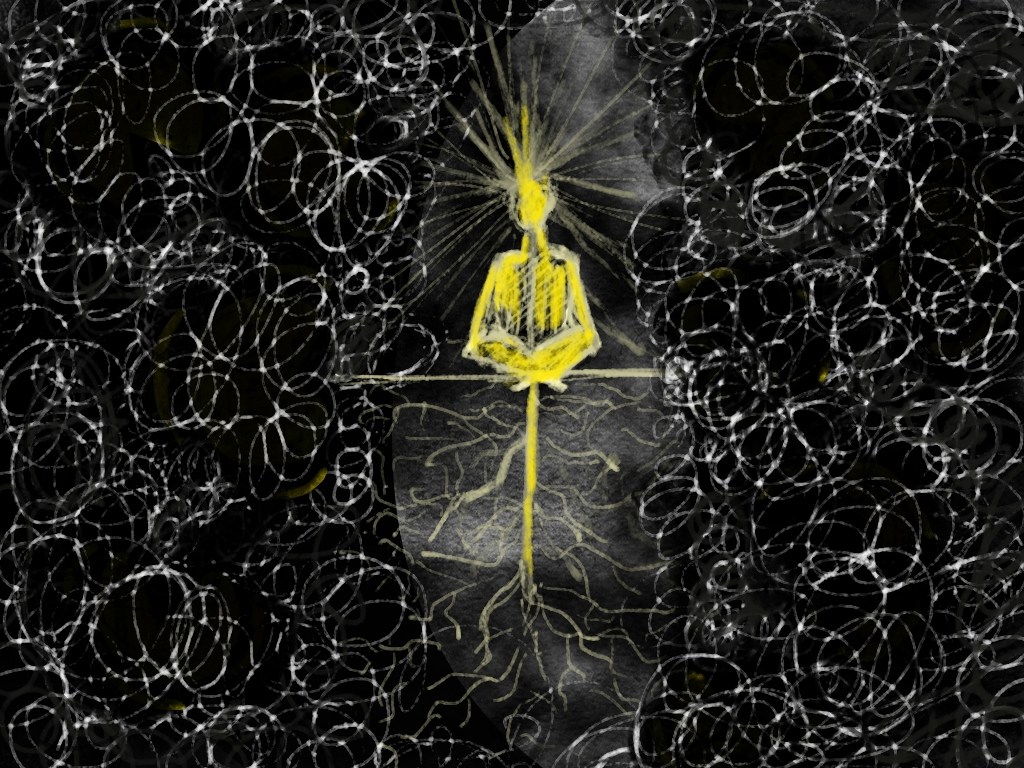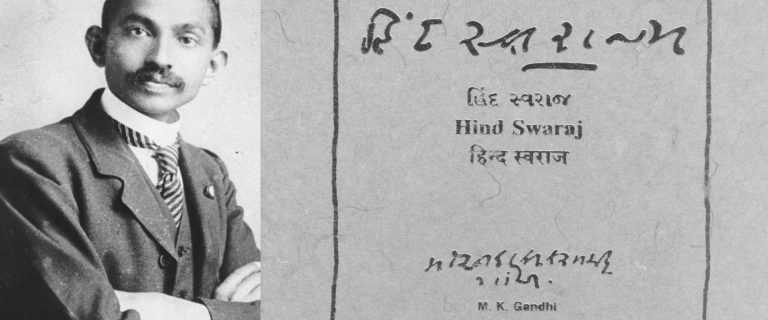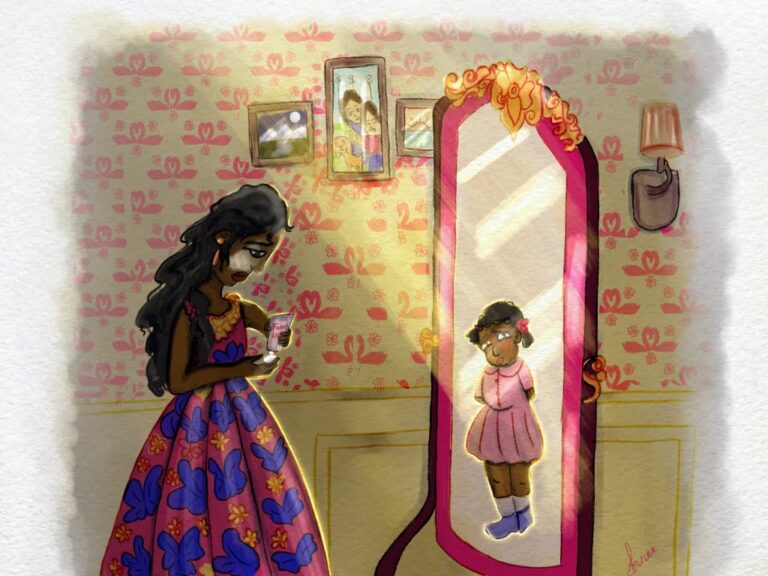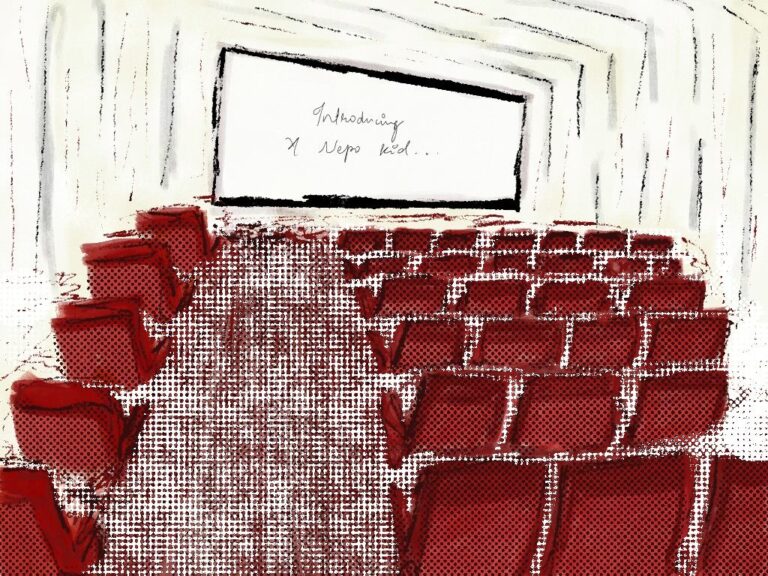Krishnamurti on Quietude and Education
Dr. Jyoti is a professor at Delhi University.

This article is co-authored with Shreya. Shreya Gupta is a fourth-year student in Bachelors of Elementary Education program at the Department of Elementary Education, Gargi College.
It is often believed that we learn when the mind is active. Quietude is far more educative.
Philosopher-educator Jiddu Krishnamurti (11 May 1895 – 17 February 1986) is widely regarded as among the greatest teachers of modern times. A study of his writings, teachings, and commentaries is an important theme of study in teacher education programs, particularly in India. His educational philosophy is not an idealist’s metaphysical imagination but one that connects education with the ‘here and now’ of life. His educational concerns include individuals’ search for happiness, problems of modern society, and the need to bring about radical changes in the world. He did not teach adherence to any particular philosophy, religion, or system: social, economic, or political. The core of his philosophy is expressed in his epigrammatic statement ‘Truth is a pathless land’, one that cannot be traversed through dogmas, creeds, or any organized systems. At the essence of his teaching lies the need to bring a contemplative quality to the everyday questions of human existence. The aim of education is one such major theme confronting modern civilization. He believed that the value of education was in how far it enabled us to discover the meaning and significance of our life. Education to him involved ‘the understanding of oneself, for it is within each one of us that the whole of existence is gathered.’ In his book Education and the Significance of Life, first published in 1953, he writes
The ignorant man is not unlearned but he who does not know himself and the learned man is stupid when he relies on books, on knowledge, and on authority to give him understanding. Understanding comes only through self-knowledge, which is awareness of one’s total psychological process (:17)
Right kind of education
His conception of the right kind of education is radically different from the prevailing practice that views education as the acquisition of a given body of knowledge. He explains,
The right kind of education is not concerned with any ideology, however much it may promise a future Utopia. The right kind of education means the awakening of intelligence, and the fostering of an integrated life, and only such education can create a new culture and a peaceful world (:23).
Discipline, teacher authority, and accumulation of knowledge are understood and practiced in school systems in a manner where children are rarely allowed free will and punished if they don’t obey. According to him, such a notion of discipline is not a strong foundation for us as a society. It only establishes massive institutions and hires teachers who rely on a system rather than being attentive, observant, and meticulous in their interactions with each student individually. Education is a process that ‘involves a search within’.
To foster the right kind of education, an educator must acquire an intimate understanding of himself as well as her students; rather than relying on ideologies, systems, and prevailing practices. For him,
Discipline means to learn, not to conform, not to suppress, and not to imitate the pattern of what accepted authority considers noble.
He writes that what we pose as education is merely the acquisition of a technique. That anyone can do by learning to read and write. He believed that while fostering the acquisition of a skill, the right kind of education should also let a person experience the whole process of life, which is of far greater importance. Through this experience, capacity and technique will be placed in the proper context. The act of speaking one’s mind naturally develops a style if one truly has something to say; nevertheless, studying a style without first experiencing is superficial. In an interview an educator from a school based on Krishnamurti’s teaching remarked that the only lasting way to address human problems is through an education that brings up young people rightly, one that questions the purpose of prevailing educational practices (The New Leam, 2022).
Silence as an instrument of learning
Teachers tend to believe that children learn when the mind is active and uses their senses to interact with the text. It is difficult to argue that activity is a bar and children learn best when the mind is still, quiet and restful. In our education system, the sound of learning is nil. The classrooms might be still and silent but there is a difference between learning with an active mind and learning when the mind is still and silent. The practice of silence is, in our personal view, resonant with Krishnamurti’s right kind of education; an aspect of his educational thinking that has not received as much attention as it merits. He writes,
The love of beauty may express itself in a song, in a smile, or in silence, but most of us have no inclination to be silent. We do have not the time to observe the birds, and the passing clouds, because we are too busy with our pursuits and pleasures (:128).
Silence not only provides a space for quietude, self-awareness, and reflection but is an enabler for exploring both the world and our inner self. If the right kind of education; is the basis for inward flowering, the development of an integrated being, and an intelligent understanding of the world; then in walking this pathless land, there is no one way or prescription for it. Its instruments are freedom, intelligence, and self-knowledge; and silence is a part of each of these. Krishnamurti experienced the ‘importance of being in solitude, of turning away, inwardly, from human society (Nagar, 2020: 18) as ‘solitude then becomes the soil in which the flower of authentic self-exploration blossoms’ ( Ibid). The French mathematician Blaise Pascal famously remarked ‘All of humanity’s problems stem from man’s inability to sit quietly in a room alone’. With the advent of man-made technologies, screen time demands, and dystopian imaginations of the future; Krishnamurti’s offers a panacea for contemporary times. He teaches,
Keep far away; they are waiting for you, the experts in god and the bomb throwers: the one will convince you, and the other [show you] how to kill; there are so many ways to find god and so many, many ways to kill. But besides all these, there are hordes of others to tell you what to do and what not to do; keep away from all of them, so far away that you cannot find yourself or any other. You too would like to play with all of them who are waiting for you but then the play becomes so complicated and entertaining that you will be lost. You should never be here too much, be so far away that even you cannot find yourself ( Krishnamurti, 1962).
Quietude alone offers possibilities of the right kind of education that humanize young children’s lives in their educational journeys.
References
- Nagar, C. 2020. ‘Speaking of Solitude’, Journal of Krishnamurti Schools, Issue 24, 15-19.
- Krishnamurti, Jiddu,. 2014/ 1953. Education and the Significance of Life, Chennai: KFI.
- The New Leam. 2022. J. Krishnamurti’s Birth Anniversary Special / The New Leam in Conversation with Dr. Shailesh Shirali, 11.05.2022 available at https://www.thenewleam.com/2022/05/j-krishnamurtis-birth-anniversary-special-the-new-leam-in-conversation-with-dr-shailesh-shirali/
- Krishnamurti, J., 1962. Notebook, Bombay, 7 March 1962.









Purpose of the article is so smoothly done which gives more insight into Krishnamurti’s thoughts . Now I have a little better understanding about ideology and future Utopia.
But the most interesting part I found is Silence as an instrument of learning. Learning is not only consisting of Silence . Communication and expressive attitude build more confidence and conceptual understanding plus allow us to explore perspectives For life time . In my block teaching experience I always remember I did not get any freedom for shared book reading as our system believes that Sounds of learning is nil . Somewhere we neglect that children could be knowledgeable and Curious creativity in nature . They can create understanding of so many things within their peer group without any formal classes .
I feel very nice like I experienced and now expressing that silent Classroom under pressure . Where the voice of learners doesn’t exists . The classrooms might be still and silent but there is a difference between learning with an active mind and learning when the mind is still and silent.
This article beautifully explains the thoughts of Jidu Krishnamurthi on the education. It explains the essence of Right king of education in his philosophy. The original excerpts taken from his book ‘Education and the significance of life’ complement the piece. Very though provoking article.
Really thought – provoking article. I personally loved these lines “solitude then becomes the soil in which the flower of authentic self-exploration blossoms”. Krishanmurti has a very unique take on learning which is not dependent on textbooks.
Each part of this article deepens the essence of the term ‘Right Kind of Education’ given by Professor Krishnamurti .Moreover, I personally like this line which I want to highlight- To foster the right kind of education, an educator must acquire an intimate understanding of himself as well as her students; rather than relying on ideologies, systems, and prevailing practices. These days system is given priority rather than someone’s thinking or point of views which I feel is quite mechanical instead of being productive.What I feel after reading this article is that
Understanding and practicality is must in order to make better use of knowledge.
I could equate with this article. The notion of the right kind of education of Krishnamurthy is totally in contrast the way we were taught . For him the education is the process that involves the search from within. And he also tries to throw the light on the importance of silence in learning as it provides a space for self awareness, reflection of the world and our inner selves .
I very well resonate with the article. On the path to acquire education with so much going around us and withing ourselves, we should pause, sit in the quiet and try to reflect as ‘education is a process that involves a search within. Self-knowledge and quietude truly is the key.
Well*
The article is informative and we’ll written. I personally find the topic of solitude and loneliness very interesting therefore the ‘Silence as an instrument of learning’ part was my favourite. I belive that gandhiji and Krishnamurthy were very different but yet very similar and your article reminded me of him. What are your thoughts on that?
Thanks a lot, Mitali! I appreciate your comment.
Such an enlightening article . I could really connect with the article . The article is well-written cherishing the importance of silence, solitude and Right kind of education. So glad to read this article 🌸